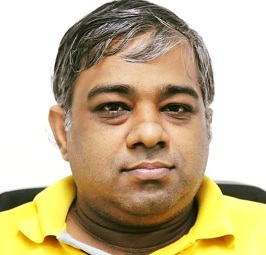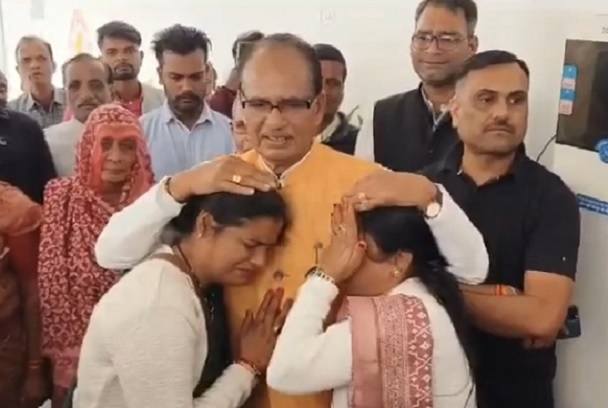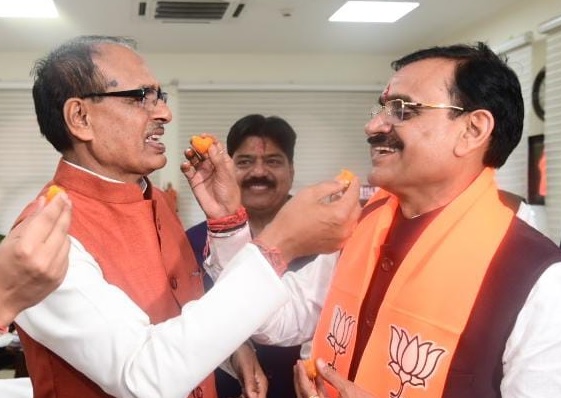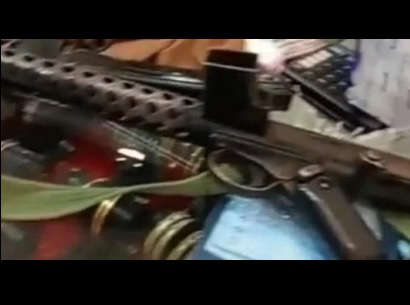Penning poetry for seven decades: The senior Urdu poet is still composing poetry
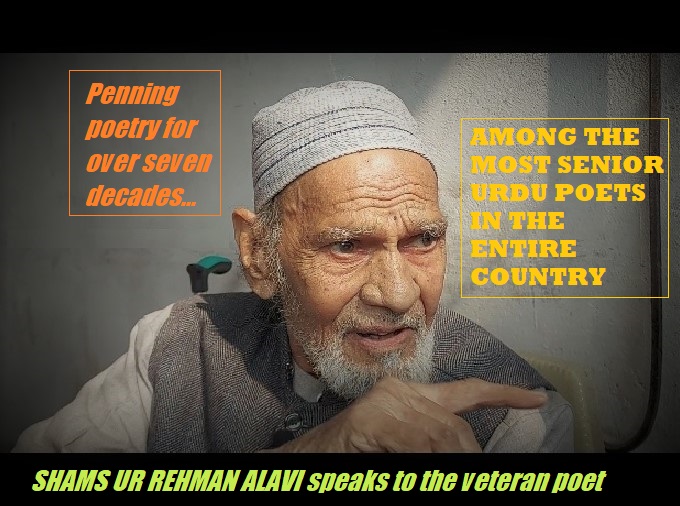
Shams Ur Rehman Alavi
NewsBits.in
BHOPAL: Wafa Siddiqui is one of the India's senior most Urdu poets. Widely respected, he has been composing ghazals and penning nazms for over seven decades.
Ubaidur Rahman 'Wafa' Siddiqui, whose first poetry collection was published long back in 1962, had been penning poetry when the country hadn't even gained Independence.
As a teenager, he had the natural talent to understand 'meter' and the format, the art of poetry and rules of Urdu poetry. However, he became a prolific poet in 1950s. In this discussion, we spoke to the master poet who has won many awards and has four collections to his name, about his life and poetic journey.
"I was born in Agra in 1932. However, in childhood I was sent to Badi in Dholpur. There, I studied and my early years were spent. I learnt Urdu, Arabic and Persian from the scholar Abdul Majeed Amritsari". In mid 1940s, Wafa Siddiqui had already started penning poetry and hence his literary career spans over 75 years.
He says that during 1947, there were major communal disturbances in the region around Dholpur and hence, he came to Bhopal, which was an abode of peace. "Here, there was harmony and it was a city of literature. There were major poets and people loved them as well as their compositions".
I too got affected by the culture of the city and began writing on a regular basis. In fact, after 1955, I was known in literary circles and had begun attending mushairas. Within seven years, his first collection of poetry came out. Taar E Pairahan was published in 1962, when he was just 30.
One of his couplets:
nezo.n pe jo buland rahein vo qubool hain
qaatil ke aastaa.n pe jhukein aise sar na do
Translation: We give ascent that let our heads get severed and raised on the spears, but they must now bow before a tyrant
In Bhopal, he got the poetic atmosphere and the poet Shifa Gwaliari was his guide and mentor in poetry. "Almost all the major poets were supportive and I attended events, recited poetry and got acclaim. In fact, Sheri Bhopali and Kaif Bhopali encouraged me a lot in those days".
Remembering the era, he says that poets of the calibre of Taj Bhopali and Basit Bhopali were around in those days. "Imagine, when the war against China began, there used to blackouts and we recited couplets in front of thousands of people in the dark nights. Dr Shankar Dayal Sharma often presided over the events. Poetry to keep morale up, was rendered", he says.
"I was associated with the Urdu Shayar Morcha and in both the wars, first against China and second against Pakistan, we were reciting our poetry". Reminiscing the Bhopal of yore, he says that poets sat at several places and Ahad Hotel was just one of the places. There were hotels at Jumerati too where the litterateurs met.
"Taj Bhopali was at Ahad Hotel and top writers of the country would come here to meet him. Throughout the day, people had tea and also had food even as poetry was composed and recited", he said. "From Hamid Saeed Khan to Akhtar Saeed Khan, there were poets of repute. Ishrat Qadri was like my brother".
"Though there was groupism but I got support from most of the poets. In between, I got busy in my business and for a few years, I wrote less. However, later again I returned to literature". "There were good writers like Ibrahim Yusuf and Takhallus Bhopali, who enriched Urdu prose".
Sample a few couplets:
bichhdaa hai kaun mujh se kahaa.n ye Khabar na do
muD muD ke dekhnaa paDe aisaa safar na do
Saat samandar naape tum ne ham ko ye tasleem magar
Ham ko naap sako na mumkin ham aisi gehraai hain
Lagega hamara bhi darbaar ek din
Banegi hamaari bhi sarkaar ek din
&
jin ki buniyaado.n mein ek taqdis thi tahzib thi
aaj mere shahr ki vo saari taamire.n jalee.ñ
ye to zinda.n ke nigahbaa.n hi bataenge tumhein
kin asiro.n ne lagaai aag zanjeere.n jalee.n
"My first collection was published in 1962. Naqsh E Wafa was published in 1994 and Naqsh E Tabinda came out was in 2021. Earlier, my collection of Nazms was also published". Wafa Siddiqui has seen the city and the world change. He was witness to pre partition era and saw independence.
"We were happy and it was a joyous period. Sweets were being distributed as India got independent. However, when rioting began, we were scared and had to leave our place. In Bhopal, I found that the situation was totally different. Here, there was communal harmony".
"Poets like Suraj Kala Sahai Sarwar belonged to the Kayastha family that was prominent in Bhopal. Similarly, Gopi Krishna Shauq was famous poet of nazm. Many Kayasthas penned poetry in Persian and Urdu. Taj Bhopali became popular and even wrote songs for Bollywood movies. Many other poets were known across the country and outside. Even today, there are many poets".
He recites:
Tu 'Wafa', nukta cheeno.n ki mehfil mein hai
Mat sunaa, jaaegi raae'gaa.n daastaa.n
Wafa Siddiqui says that he has been content with the love and affection. "I got awards, recognition and everyone in literary fraternity gave me ample respect. I have no regrets. Most of the poets of my generation, are no more. We have hopes from the new generation and he points at poet Budr Wasti, who was sitting close to him.
The nonagenarian poet said that Bhopal is land of literatteurs and scholars, religious figures. He recalled names of Maulana Imran Khan Nadwi, Syed Suleman Nadwi's presence as Qazi in the princely state and many other Ulema including Shahar Qazi late Wajdi ul Hussaini. "Though I don't go to mushairas much, due to my health, but I still compose poetry", he said.





